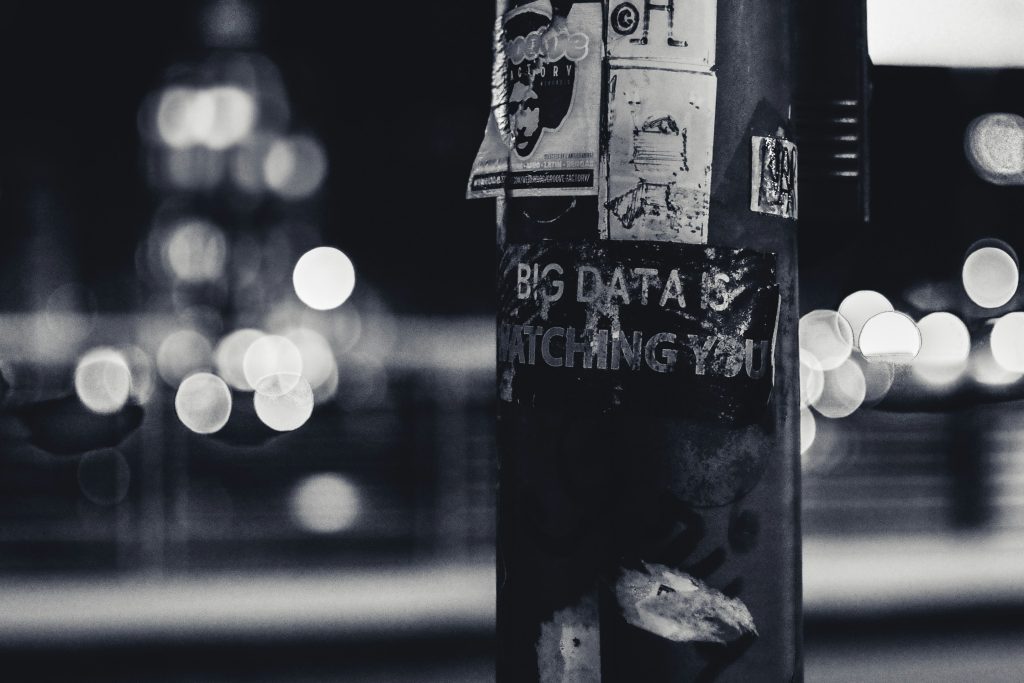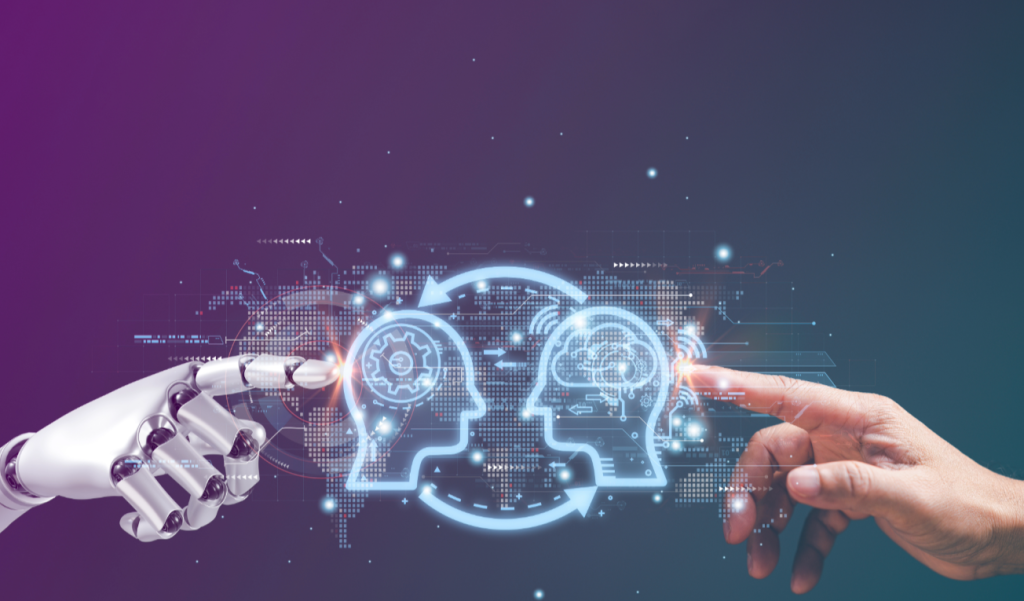Reflection Blog #3- New Horizons- To Boldly Go Where No One Has Gone Before
As I was reading about the technological advancements on the horizon this week, I was filled with both excitement and trepidation for the future. Excitement, because much of what I read reminded me of the technologies of the future that I had wondrously watched on episodes of Star Trek as a child. Dr. McCoy’s medical devices efficiently diagnosed and treated patients, and holodecks provided entertainment and interaction with holograms. These types of technological marvels are fast approaching. But I also feel trepidation, because I have seen the disruptive nature of technology when it’s used purely to generate profit, disregarding ethics and respect for civilized discourse.
“When technology divides us, it also disempowers us, as everything about us becomes subservient to the conflict. Our agency, our identity, our activities- all these become means and mechanisms for one faction to fight the other” Stephen Downes, senior research officer for digital technologies with the National Research Council of Canada (Anderson & Vogels, 2021)
Technology and scientific advancements have the potential to enhance the quality of life for many families by improving key areas such as health care, education, and community living, as well as presenting prospects for sustainable energy, urban farming, local manufacturing, and personalized diagnostics (Anderson & Vogels, 2021). It also holds promise in tackling seemingly insurmountable problems like climate change, through technologies such as solar geoengineering, more efficient heat pumps, hydrogen power planes, and direct air capture (The Science and Technology Correspondents of the Economist, 2021).

Despite these remarkable strides in science and technology, humanity is facing a myriad of seemingly intractable challenges. These include climate change precipitating environmental disasters; persistent conflicts and violence plaguing societies worldwide; the pervasive spread of misinformation fueling political instability & the rise of authoritarian regimes; the exacerbation of inequality and injustice, and mounting concerns regarding privacy and surveillance issues (Anderson & Vogel, 2021). While technology has the potential to address some of these challenges, its misuse has exacerbated many of these issues (Anderson & Vogel, 2021). Unless we can harness the incredible power of technology to address these challenges, I fear we will face increasing chaos and heartache in the future.

One idea that resonated with me as I was reading the experts’ predictions for the future, was the need to adopt a “meta layer of awareness” in our relationship with technology (Anderson & Vogels, 2021). Chudakov, founder and principal of Sertain Research, points out that our devices and tools are now “more sophisticated than our ability to fully appreciate their effects; those effects are hidden in the tool logic, the actions of the tool” (Anderson & Vogel, 2021). Newer technologies “present the ability to avoid presence…, to hide, to obfuscate, to distort”, which has the potential to reduce empathy and compassion. Indeed, the loss of our humanity itself is at stake as “we lose the right to be human,….who you are, what you want, your dreams, desires, and aspirations become subordinate to algorithms and algorithmically defined choices on your behalf” (Colclough, as cited in Anderson & Vogel, 2021). To avoid being used by technology, and to use it instead to further humanity’s agenda, we all need to more fully understand the tool’s logic and business model.

“We become what we behold. We shape our tools and then our tools shape us… We used to teach people how to use tech, now we teach tech how to use people” Paul Jones, professor emeritus of information science at the University of North Carolina, Chapel Hill (Anderson & Vogels, 2021).
One such new and shiny tool is ChatGPT. Unlike Wikipedia, it is privately owned, and the sources that it uses to arrive at its responses aren’t visible, and may at times even be “mysteriously invented” (Fister & Head, 2023). Even more concerning is that the company is planning on customizing results to match the users’ political and cultural beliefs (Fister & Head, 2023). It is incumbent on educators, including us as future librarians, to “help students think critically and ethically about the new information infrastructures being built around us” (Fister & Head, 2023). Instead of leaving it all in the hands of a few powerful big tech companies, we need to play a greater role in “deciding what happens to our knowledge environments” (Fister & Head, 2023).

By simply viewing ChatGPT through the lens of ACRL’s framework for information literacy, librarians can highlight the problematic aspects of ChatGPT. Applying ACRL’s frame of “authority is constructed and contextual” to information literacy, we can point out that by not providing sources, ChatGPT makes it difficult to judge the quality of the sources, and therefore can’t be “considered a truly credible source”(Pappini, 2023). Referring to the “information has value” frame, we can point out that the current free version is being used to help ChatGPT continue to learn, therefore we “are contributing to ChatGPT’s development by providing free labor” (Pappini, 2023). Applying “the information creation as a process frame” points out that ChatGPT robs us of the creation of knowledge through the process of writing multiple drafts. Referring to the “scholarship as a conversation frame” reveals that ChatGPT cannot offer us “different opinions and perspectives needed to learn” (Pappini, 2023). As librarians, we have a responsibility to help students and others critically and ethically evaluate the information infrastructure of the future (Fister & Head, 2023). Apart from helping students, librarians are also tasked with protecting patron’s data. AI can be useful in libraries and archives in “creating metadata” from the digitization process. However, as more libraries and their vendors move into AI, we should also heed the “privacy implications of collecting and storing data” and use “localized machine learning models” to minimize data privacy and security issues (Griffney, 2019).
Another troubling trend in the future may be the temptation to substitute technology for real-life human connection. While AI and digital assistants like Alexa, have some upsides, they are poor substitutes for the real-life experience. Many parents have turned to Alexa to tell their kids stories and play songs to reduce screen time (Kelly, 2018). While this affords the children some measure of autonomy, excessive interaction with Alexa, can “limit the quantity and quality of human social interactions” (Severson as quoted in Kelly, 2018). Research indicates that interactive human conversation is the best way children learn (Hirsh-Pasek as quoted in Kelly, 2018). Even adults’ conversations with Alexa “are superficial think, and lack most of the hallmarks of person-to-person conversation” (Hiniker as quoted in Kelly, 2018). Virtual reality has also been explored to expand the positive benefits of student field trips to those who lack access to classic works of art and historical artifacts (McShane, 2018). It is yet unclear whether this experience gets “close enough to the real thing for kids to benefit” (McShane, 2018). While virtual reality can supplement current field trip opportunities, improving access to current field trips may be a better way to get the full experience and benefit of a field trip (McShane, 2018). While libraries can use tools such as Alexa to optimize their time and resources and VR to bring innovative programming to their patrons, their real value lies in creating a sense of community for their patrons, through their collections and services.

So, am I advocating banishing technology from our lives? Not at all. For better or worse, technology is here to stay and it can offer time-saving and efficient solutions to problems. I am, however, highlighting the need to “think critically and ethically about the new information infrastructure” (Fister and Head, 2023). We must also recognize that to retain our humanity, we must also provide places for people to connect and form communities in real life. Libraries and librarians are uniquely positioned in our society to advocate for an ethical and critical evaluation of the digital information infrastructure as well as provide the “social infrastructure where people gather, bonds form, and communities are strengthened” (Klinenberg, as quoted in Peet, 2018).
References:
Anderson, J., Rainie, L., & Vogels, E. (2021, Feb 18). Experts say the “new normal” in 2025 will be far more tech-driven, presenting more big challenges. Pew Research Center. Retrieved from: https://www.pewresearch.org/internet/2021/02/18/experts-say-the-new-normal-in-2025-will-be-far-more-tech-driven-presenting-more-big-challenges/
Griffey, J. (2019, March 1). AI and machine learning: The challenges of artificial intelligence in libraries. American Libraries. Retrieved from: https://americanlibrariesmagazine.org/2019/03/01/ai-machine-learning-libraries/
Fister, B. and Head, A.J. (2023, May 4). Getting a grip on ChatGPT. Inside Higher Ed. Retrieved from: https://www.insidehighered.com/opinion/views/2023/05/04/getting-grip-chatgpt
Kelly, S. (2018, Oct. 16). Growing up with Alexa: A child’s relationship with Amazon’s voice assistant. CNN Business. Retrieved from: https://www.cnn.com/2018/10/16/tech/alexa-child-development/index.html
McShane, M. (2018). Is virtual reality the future of field trips? Forbes. Retrieved froM; https://www.forbes.com/sites/mikemcshane/2018/06/13/is-virtual-reality-the-future-of-field-trips/?sh=75c12fcd1809
Pappini, A. (2023, Jan. 27). ChatGPT: A library perspective. Bryant University-Krupp Library. Retrieved from: https://library.bryant.edu/chatgpt-library-perspective
The Science and Technology Correspondents of the Economist. (2021). The world ahead, 2022. What next? 22 emerging technologies to watch in 2022. The Economist. Retrieved from: https://287.hyperlib.sjsu.edu/wp-content/uploads/2022/02/What-next-22-emerging-technologies-to-watch-in-2022-The-Economist.pdf
5 Comments
Maggie Rogers
Hi Roya,
Thanks for your illuminative thoughts on New Horizons for libraries. I really appreciate the way you applied the ACRL’s framework to thinking about ChatGPT. I have been actively avoiding ChatGPT but need to get my head out of the sand and accept that it will be part of our digital lives from now on. Your perspective provides a good entry point for me to focus on. Much appreciated!
–Maggie
Roya Koutchekinia
Thank you Maggie. My experience with ChatGPT is that it is good for brainstorming ideas, and could be a decent tool in the initial stages of a project, but it is very superficial and definitely not to be relied upon as a credible source.
Michael Stephens
@royaflin This is such a thoughtfully presented exploration of the current state of… everything really! This so resonated with me at the end:
We must also recognize that to retain our humanity, we must also provide places for people to connect and form communities in real life. Libraries and librarians are uniquely positioned in our society to advocate for an ethical and critical evaluation of the digital information infrastructure as well as provide the “social infrastructure where people gather, bonds form, and communities are strengthened” (Klinenberg, as quoted in Peet, 2018).
Libraries are in an amazing posoition to offer spaces and programming to help folks make sense of the world. I hope we keep moving toward that goal.
Roya Koutchekinia
Thank you for your kind comments! I just checked out Klinenberg’s Palaces for the People from the library (I was inspired by the quote at the end).
Barry Robinson
The future of technology evokes both excitement and concern. While advancements hold promise for improving healthcare, education, and addressing global challenges like climate change, there’s a risk of technology dividing us and eroding our humanity. We must adopt a “meta layer of awareness” in our relationship with technology to understand its effects fully. Concerns arise with tools like ChatGPT, which lacks transparency and may reinforce biases. Librarians play a vital role in fostering critical thinking and ethical evaluation of emerging technologies. Additionally, while AI and virtual reality offer opportunities, they can’t replace genuine human connection. Libraries serve as essential community hubs, advocating for both technological literacy and the preservation of human interaction.